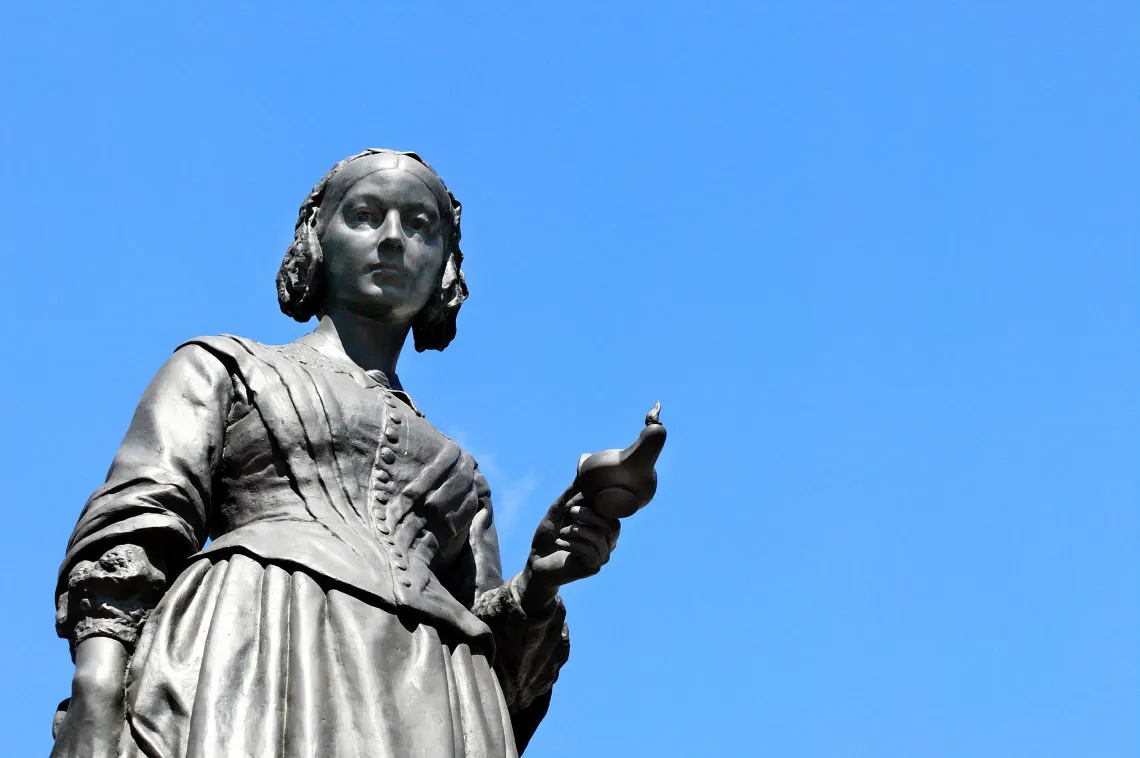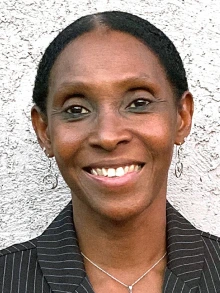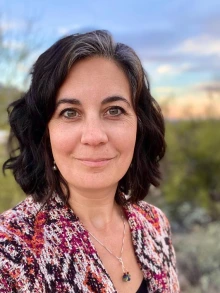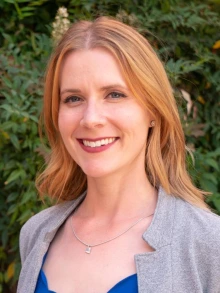UArizona Nursing Professors Reflect on Nurses Pivotal Role During Women’s History Month

Florence Nightingale
Getty Images
When it was established in 1978, Women’s History Week had modest ambitions: highlight women’s contributions to American history, culture, and society during the days surrounding March 8, Women’s History Day. In the years since, a week deservedly grew to a full month commemorating and encouraging the study, observance, and celebration of the vital role of women in American history.
The contributions of women to the field of nursing – which stretches back well before the creation of nurse education programs in the mid-1800s -- is one facet of women’s history that warrants celebration. In that spirit we reached out to several of our faculty members to hear their thoughts on this important celebration regarding the field of nursing.
“As we celebrate Women’s History Month, I reflect on the women who worked diligently to advance the nursing profession through the years, and I celebrate the journey of nursing as a profession," ~ Lateefah Collingwood, PhD, NNP, Assistant Clinical Professor

Lateefah Collingwood, PhD, NNP, Assistant Clinical Professor:
Historically the practice of nursing was primarily conducted by women. As we celebrate Women’s History Month, I reflect on the women who worked diligently to advance the nursing profession through the years, and I celebrate the journey of nursing as a profession. During this month, I look retrospectively with gratitude to Florence Nightingale for being the nursing pioneer that she was, and for her contributions which include but are not limited to sanitation and infection prevention measures and the advancement of formalized nursing education.
As a person of color and in this era of Equity, Diversity, and Inclusion, I celebrate the nurses of color who may not be widely known in history and who may have been less celebrated. Mary Seacole, a British-Jamaican nurse of the 1800s who started “The British Hotel” in Crimea to care for wounded and sick soldiers. Harriet Tubman who served as a nurse during the Civil War and who later started a care home for elderly and indigent people of color in the early 1900s. Susie Walking Bear Yellowtail, who was the first Indigenous person in the U.S. to earn a nursing degree. Marcella LeBeau, who was a volunteer in the U.S. Army Nurse Corps during World War II and a founding member of the North American Indian Women’s Association. Ildaura Murillo-Rohde, who founded the National Association of Hispanic Nurses. Mary Mahoney, who was the first black woman to earn a professional nursing license in the U.S. and who was an advocate for increased access to nursing education. Virginia Sneed Dixon, who was the first Cherokee nurse to serve overseas. Adah Belle Thoms, who lobbied for black nurses to serve in the American Red Cross and the Army Nurse Corps during the first world war. Hazel Johnson-Brown, who was the first black chief of the U.S. Army Nurse Corps and the first black female Brigadier General. There are so many more, too numerous to mention.
As a nurse, I celebrate Nurse Scientists for the practice knowledge that they provide, Nurse Theorists for providing our theoretical foundations and frameworks, nursing professors and instructors for continually educating and developing the nursing workforce, through Nurse Leaders who guide and lead nurses, and all the nurses who have cared and who continue to care for patients in hospitals and in a variety of settings.
Nursing through the years has been transformed in many ways. As we celebrate Women’s History Month and the numerous female nurses in history, it is important to recognize that the nursing profession has become a multi gendered, multi racial, multiethnic, and multi cultured profession. The profession today is made up not only of women but of a collection of diverse nurses who are committed to caring for the sick, to promoting wellness, developing knowledge, sharing knowledge, teaching, leading, growing, innovating, standing against inequities, and blazing the trail forward.

Elise Erickson, PhD, MSN, BSN, Assistant Professor:
As a scientist, this month is about standing on the shoulders of giants who had to work twice as hard to just have a seat at the table. For example, as a researcher who uses genetic tools in my work, I was struck by the omission of the mention of Rosalind Franklin by a recent NPR report on the anniversary of the discovery of the double helix DNA structure -- initially credited to James Watson & Francis Crick, Nobel Prize in 1962. Franklin’s discoveries informed the work that make my work possible today. Given that Franklin died at only at 37 from ovarian cancer also gives me pause, knowing that this aggressive disease remains a mystery to treat in early stages decades later. It makes me think about UArizona’s own Bio 5 Director Dr. Jennifer Barton, who is innovating the early treatment of ovarian cancer with advanced endoscopic technology. I have no doubt Dr. Barton will one day join the ranks of science giants guiding future researchers in solving female health issues and helping to keep the future Rosalind Franklin’s of the world alive to see their work change the world.

Jessica Rainbow, PhD, RN, Assistant Professor:
Nursing has long been thought of as a female profession and provided professional opportunities for many to advance their educations and livelihoods. As nursing moves to be a more inclusive profession that reflects the communities we serve and improves health outcomes for all, we must continue to invest in and empower nurses. During women’s history month, I am reflecting on my role as a mentor. As a mentor at the University of Arizona College of Nursing, I have had the great privilege of mentoring 27 students over the last five years. Most of these students have been women. My goal as a mentor is to help students identify their future professional and personal goals and support them in getting the experiences they will need to be successful in achieving those goals. Mentoring the next generation of nurse scientists and clinicians is my favorite part of my work, and I am continuously impressed by the impact these former students are making in patient care, education, and research.

Meghan Skiba, PhD, MPH, MS, BS, Assistant Professor:
As an assistant professor in the College of Nursing, during this Women’s History Month, I acknowledge the legacies of women before me who blazed the trail I now walk. Nurses are innovators in healthcare and are leaders that inspire the next generation of women and challenge the status quo. Highlighting the work of women in the nursing profession, through research and practice, is promoting population health.

